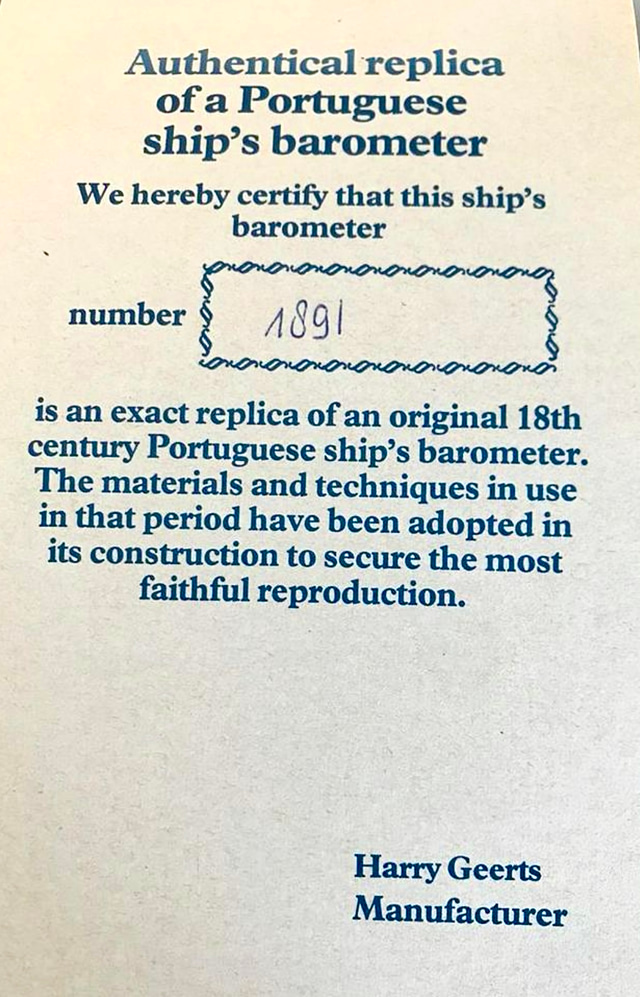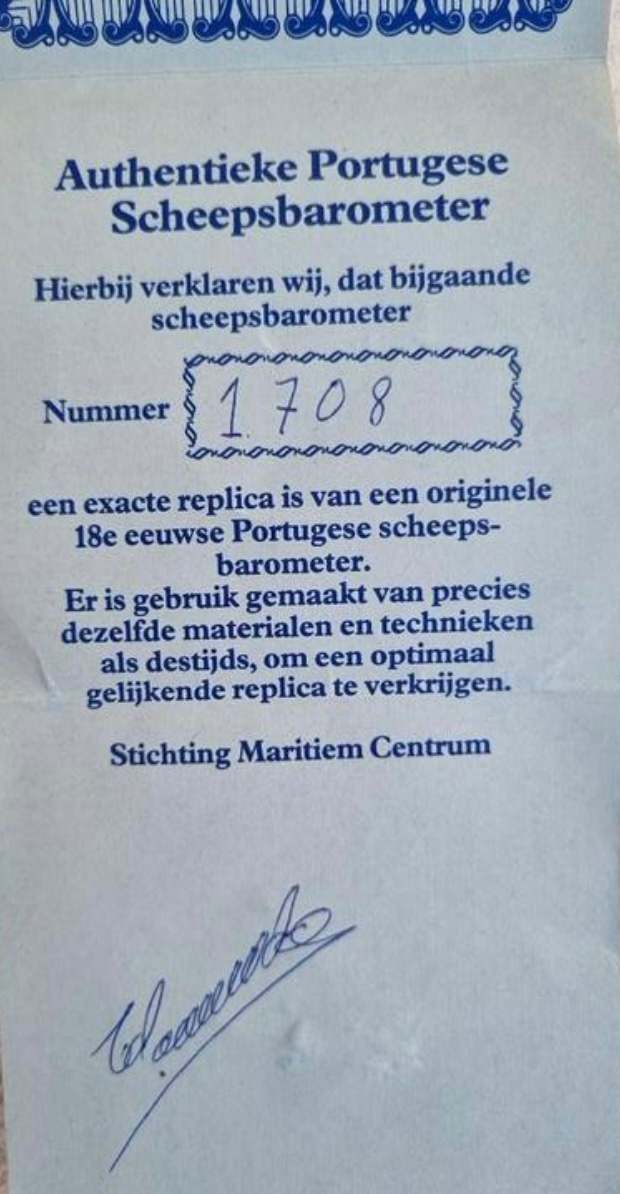

Dejoka is one of several designations associated with a Dutch manufacturer responsible for producing so-called “authentic replicas of 18th-century Portuguese ship’s barometers.” The precise identity of this manufacturer remains uncertain: the accompanying documentation supplied with these instruments invariably bears different names, although the papers themselves are executed in a uniform style.
The register plates of these barometers frequently display engraved signatures such as R.N. Desterro of Lisbon, Dejoka of Lisbon, Roby of Liverpool and similar variations. Because these inscriptions are rendered in very small and often poorly legible script, numerous alternative readings have arisen, including Dyola, Destorro, and others.
It is both ironic and regrettable that such barometers are occasionally misdated to the 16th century, a misconception arising from the inscription “16 a 22” found on the scale—despite the fact that the barometer as an instrument was not invented until the 17th century, in 1644.
In reality, the creators of these replicas copied the legendary Fitzroy marine barometer, also known as the “Gun Barometer,” which was manufactured by Negretti & Zambra under the instructions of Admiral Fitzroy himself. However, these replicas bear no resemblance to the original instrument — starting with the use of modern plastic protective glass and a completely useless vernier covering the barometric scale, and ending with the type of mercury tube, which is essentially a bulb-cistern barometer, and the absence of vulcanized rubber designed to absorb vibrations from naval cannon fire.
Unfortunately, these replicas are very often passed off as original instruments from the 18th and 19th centuries.
Replicas of such barometers under the Roselli brand were also produced by H.N. Rose. However, the manufacturer always marked them with its own brand and never used false names or places of manufacture.